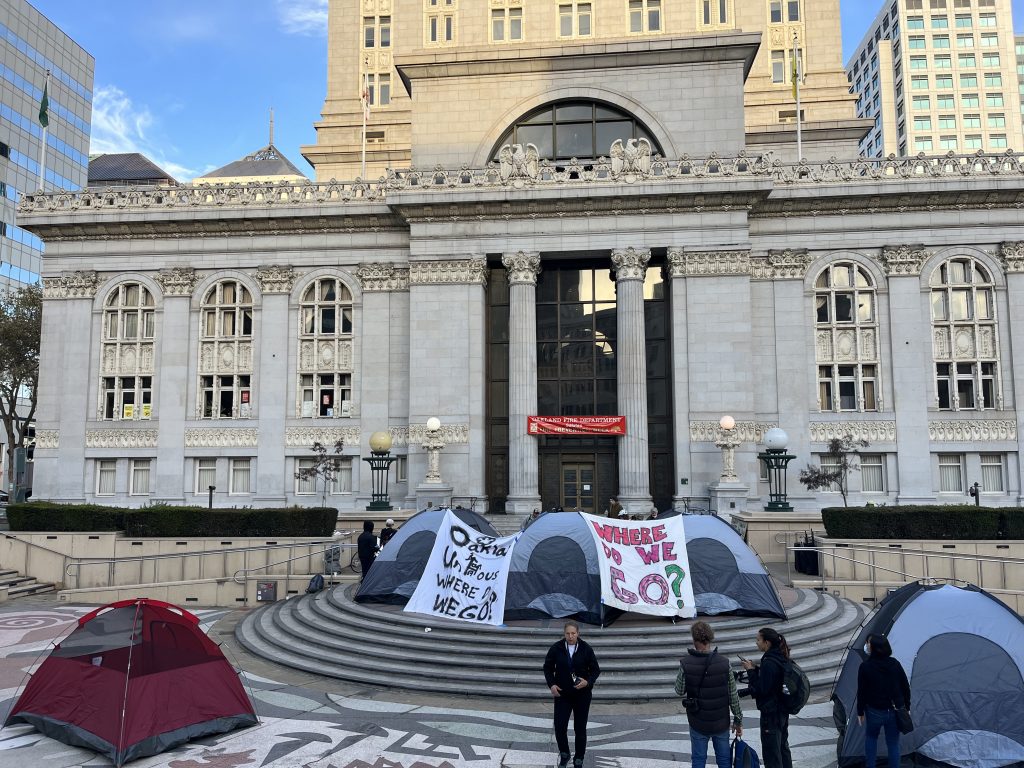
In the month of October, the massive Caltrans sweeps at Wood Street concluded, resulting in the displacement of some 200 encampment residents. While some people chose to take the shelter offered by the City of Oakland, the options on offer were inaccessible to many. As a result, former Wood Street residents scrambled to find new places to live. Many people moved from the Caltrans land that they had called their home to vacant lots in the neighborhood, such as a Caltrans-owned lot at 34th Street and Mandela Parkway, and a privately owned lot on Wood Street owned by GameChanger LLC. Others moved into the established community at the Wood Street Commons—a segment of the encampment that sits on city-owned land at 1707 Wood Street. This created crowded conditions at the commons, as the people who already lived there worked to clean up and make space for their neighbors.
In response to the chaos of the sweeps and the destruction of their community, Wood Street residents came together to continue organizing and resisting. Throughout the month, residents planned community meetings, rallies, and bike rides to garner support from elected officials in Oakland and around the state. In Oakland, the Wood Street sweeps and resulting action has become a recurring conversation at recent city council meetings, where many community members have shown up to speak during public comment and implore local leaders to pursue sustainable solutions.
In short, the Wood Street sweeps have had a widespread ripple effect. Below is a timeline of just some of the events that took place in October as a result of the Caltrans sweeps at Wood Street.
Saturday, October 1 — Wood Street residents begin their bike ride from Oakland Sacramento, where they spend the next few days building community with unhoused leaders in Sacramento, raising awareness about sweeps, and meeting with elected officials, such as Asseblymembers Nancy Skinner and Mia Bonta.
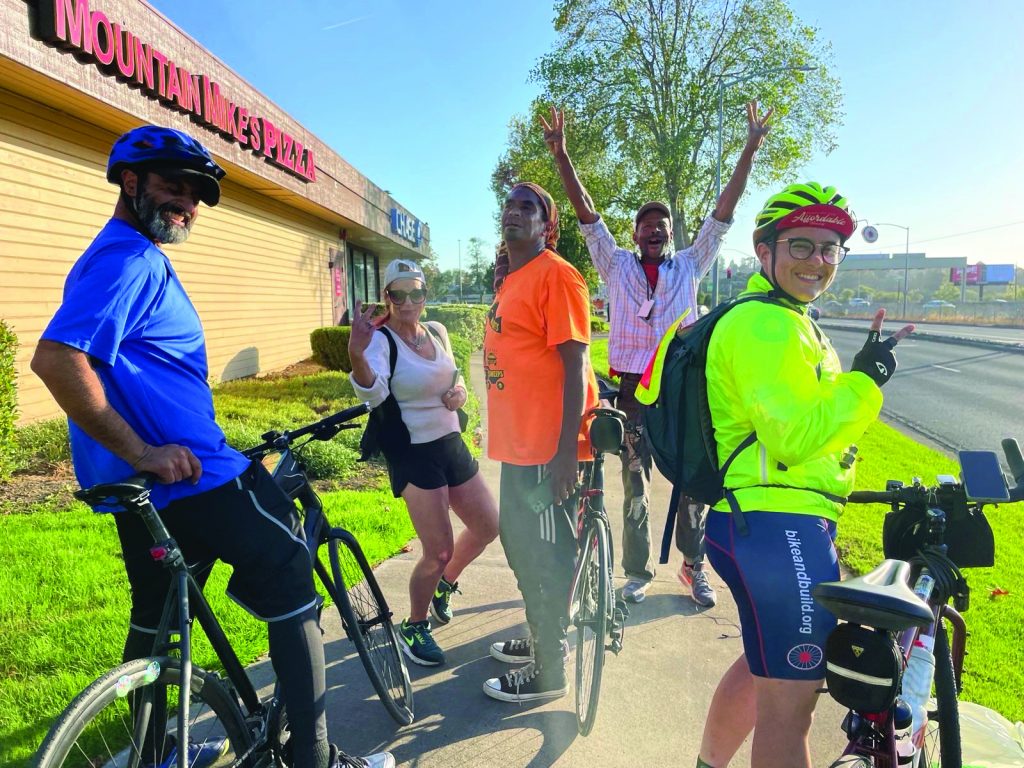
Tuesday, October 4 — At an Oakland City Council meeting, Councilmember Carroll Fife introduces her proposal to open up eight acres of vacant, city-owned land at the North Gateway Parcel—the former Oakland Army Base—to build housing for unhoused people with nowhere else to go. While she receives support from other members of the council, city administrators push back hard against the plan, saying that the cost would be too high, that the site is committed for other uses, and that there are potential environmental hazards. The council votes to continue the discussion on October 18.
Wednesday, October 5 — Caltrans begins the third and final phase of the sweep of their land at Wood Street. The first two phases took place in September, between the 8th and the 29th.
Thursday, October 6 —
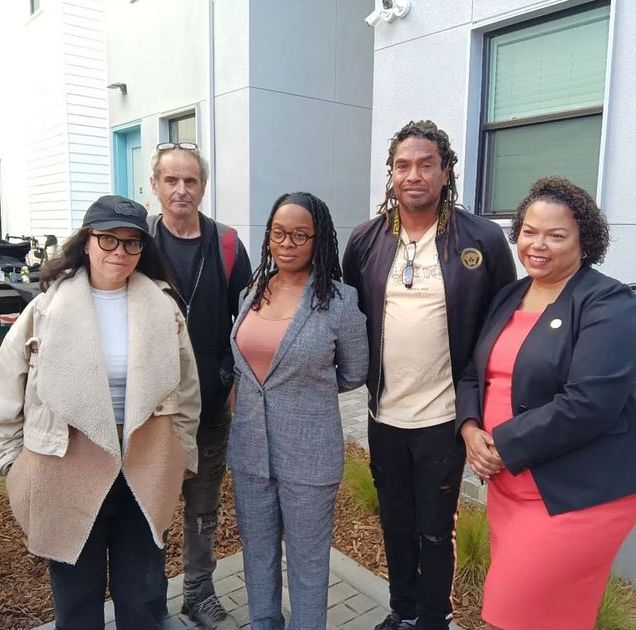
While the final section of Wood Street is being swept, residents and advocates crash a press event just two blocks away where Mayor Libby Schaaf, Councilmember Loren Taylor, Assemblymember Mia Bonta, and others are attending the opening of an affordable housing development. Schaaf and Taylor abruptly leave, but residents tell the crowd about the ways in which the Wood Street sweep has impacted their lives, and have a short face-to-face meeting with Assemblymember Bonta.
Phase three of the Wood Street sweep ends after two days.
Friday and Saturday, October 8 and 9 — Around a dozen displaced Wood Street residents move onto an empty, Caltrans-owned lot on 34th Street and Mandela Parkway. They create their own community agreements with the intention of setting up a safe and self-organized community. According to their website, the City of Oakland is currently in talks with Caltrans about leasing land at 34th and Mandela to house about 100 people, or 50 RVs/vehicle homes.
Tuesday, October 11 — The City of Oakland begins evicting a small group of Wood Street residents who had moved to a privately-owned parcel of land on Wood Street. The parcel is owned by GameChanger LLC, and has been leased to the City of Oakland to open a new community cabin site with an $8.3 million grant from the State of California, but is currently empty.
Simultaneously, Officers from California Highway Patrol (CHP) arrive at the other new encampment at 34th and Mandela and begin a 24-hour watch. CHP officers do not let anyone new in, and do not allow existing residents to leave and then come back. Advocates pass food and water through the fence. Residents negotiate to be able to leave to use the bathroom. CHP warns the group that it will sweep the lot the following Monday.
Wednesday, October 12 — On Wednesday morning, over 50 CHP officers arrive at 34th and Mandela for a surprise raid. They surround the lot and initially give people 30 minutes to leave. Some residents who live in vehicles are not able to organize tows quickly enough, and their vehicle homes and cars are impounded. Other residents scramble to help each other, and are able to save their vehicle dwellings and one tiny house. Councilmember Carroll Fife shows up and stands in front of the fence in support of the group. Four housed advocates are arrested for non-violently protesting the eviction. Several people who had lived in vehicles spend that night sleeping in tents elsewhere in the neighborhood.
At the raid, Councilmember Fife negotiates with the City of Oakland to re-open a safe RV parking site at Beach Street, one block away. The Beach Street lot was previously closed because of security concerns, but the city still holds a lease to use the site for a small safe RV parking lot for 17 trailers or RVs. The site reopens later that day. Multiple displaced residents are turned away from the Beach Street lot because their vehicles do not meet the narrow requirements for the program, which does not accommodate buses, vans, or trucks. These residents are forced to find places to park on city streets.
A few blocks away, the City of Oakland continues the sweep at the GameChanger lot. Some residents have possessions at both lots and lose the majority of their belongings.
Monday, October 17 —
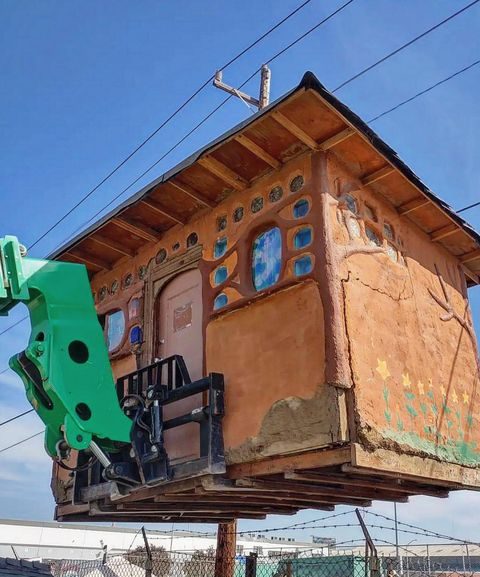
Wood Street residents and their supporters move the homes that comprised Cob on Wood—one section of the Wood Street encampment that gained widespread community support since opening in 2020. Using forklifts, community members lifted the structures and drove them to the Wood Street Commons—another section of the Wood Street encampment that sits on land owned by the City of Oakland at 1707 Wood Street.
Tuesday, October 18 — Wood Street residents and supporters pitch tents in front of Oakland City Hall, and hold a rally ahead of the 10:00 a.m. city council meeting where the North Gateway Parcel will be discussed. During the meeting, the council approves some of the money needed to move forward with investigating whether the site is fit for human habitation. This means the council will continue their discussion about building housing on the site, but the plan is far from approved. The city administration continues to push back against the plan.
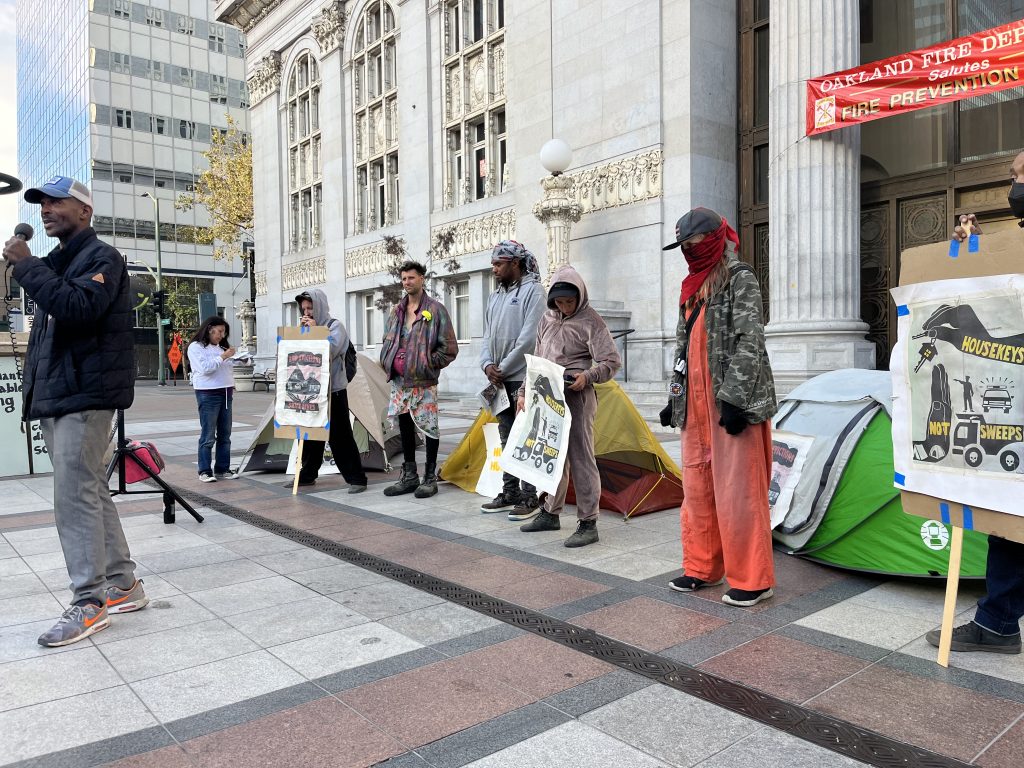
Thursday, October 20 — At the City of Oakland Rules Committee meeting—a small committee of the city council that works on scheduling for the larger council—Councilmember Fife makes a motion to schedule an item about the Beach Street safe RV parking site for the November 1 city council meeting. The item directs the council to adopt a resolution to expand the types of vehicles that are allowed to use the Beach Street safe RV parking site to include all vehicle types. The resolution also directs the city administration to negotiate a lease with Caltrans for a new homeless intervention site at the land on 34th and Mandela. Councilmember Fife’s motion is carried with some amendments, which means that the full city council will vote on this at their November 1 meeting.
The City of Oakland continues to sweep other encampments across the city and begins to fill the Beach Street site with other displaced residents from all over the city.
Monday, October 24 — Wood Street residents and supporters gather at the Wood Street Commons to discuss the Wood Street Commons Homeless Helping Homeless Voter Guide, which will look at the upcoming election through the lens of homelessness, and help unhoused people get registered to vote.
Wednesday, October 26 — A hearing takes place regarding the Blain et al v. Caltrans et al case: a lawsuit filed by residents of Wood Street in late August to stop their eviction. Federal Judge William Orrick III initially gave the plaintiffs a Temporary Restraining Order (TRO), which postponed the sweep. However, the judge eventually dissolved the TRO, allowing Caltrans to move forward. Since then, the case has continued to move through the Northern District Court.
Two matters are discussed at the October hearing. First, Wood Street residents file a motion for contempt on the grounds that Caltrans illegally damaged property during the sweep, violating the judge’s order that dissolved the TRO. The second matter involved several motions to dismiss the case, and was filed by Caltrans, Governor Newsom, Alameda County, and the City of Oakland. At the time of publication, the judge had not issued an order from the hearing. However, he indicated that he will dismiss the motion for contempt about property damage, but will leave the door open for the motion to be brought again in the future. It also seems likely that he will dismiss the case on behalf of the government agencies, but will do so mostly “without prejudice,” meaning that most of the claims could be brought again in the future.
Thursday, October 27 — The City of Oakland holds a meeting for Wood Street residents to unveil their plans for the new community cabin site at the GameChanger lot (the project for which Oakland will receive $8.3 million from the state). Many residents attend and express anger and frustration about the plans, which they say are not adequate to meet their needs. The proposal is for a one-or-two-year program that will provide temporary, transitional shelter for individuals using an upgraded version of the city’s traditional community cabin model. The City of Oakland has said that the opening of this site will coincide with the eviction of the Wood Street Commons—the largest remaining section of the original Wood Street encampment.
Sunday, October 30 — Wood Street residents host a community cleanup day for the Wood Street Commons, which acts as a resource center for unhoused people in the area, and has become very crowded since the beginning of the Caltrans sweep. Residents and supporters spend the day cleaning up and hanging out together.

Complied with support from Love and Justice in the Street.
Alastair Boone is the Director of Street Spirit.
